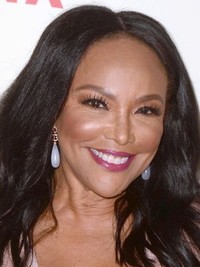Lynn Whitfield

Scion of an achievement-oriented Baton Rouge clan with roots in southern black aristocracy, toothsome, energetic leading lady Lynn Whitfield first watched the likes of Audrey Hepburn in "Breakfast at Tiffany's" and Bette Davis in "All About Eve" from the vantage of her grandmother's lap, attired in mink-trimmed frocks and seeing no reason she could not some day play those same types of roles. After gaining attention on the stage as one of the young women of color in Ntozake Shange's poetic panorama of the black female experience, "For Colored Girls Who Have Considered Suicide/When the Rainbow Is Enuf," Whitfield began appearing in supporting roles in such films as "Doctor Detroit" (1982) and "Silverado" (1985) but did not achieve real success until starring in television films ("The George McKenna Story," "Johnnie Mae Gibson: FBI," both CBS 1986) and miniseries (the acclaimed "The Women of Brewster Place" ABC 1989). Whitfield vaulted to international attention in the title role of "The Josephine Baker Story" (1991), the HBO biopic requiring her to age from 18 to 68 to portray the Follies Bergere star turned Resistance and civil rights fighter. In a highly-publicized search that rivaled that of the hunt for Scarlett O'Hara in "Gone with the Wind," she beat out more than 500 women considered world-wide for the role and won an Emmy, achieving "the greatest sense of accomplishment and realization of my vision. It absolutely called upon everything I thought I could do at that point." Her triumph as Baker, however, proved both a blessing and a curse as she became so closely identified with the Jazz Age legend that other opportunities were slow to come along. Whitfield had worked as a regular in two ABC series ("Heartbreak" and "Equal Justice") prior to playing Baker, and the dearth of good offers encouraged her to return to the small screen opposite Bill Cosby in "The Cosby Mysteries" (NBC, 1994-95). Gradually, the parts started coming her way again, and though critical response to such vehicles as "A Thin Line Between Love and Hate" and "Gone Fishin'" (both 1996) was tepid, these features increased her exposure. Whitfield roared back into the winner's column with "Eve's Bayou" (1997), her part as head of a prosperous, socially prominent black family in Louisiana drawing heavily on her blue-blooded Baton Rouge upbringing. She returned to a similar milieu as snobby Martha's Vineyard matron Corinne Coles in the ABC miniseries "The Wedding" (1998), executive produced by Oprah Winfrey, who had also executive produced the earlier "The Women of Brewster Place." Certainly, these last two roles, along with that of Josephine Baker, are the kinds of parts Whitfield envisioned for herself as that little Louisiana princess so many years ago.